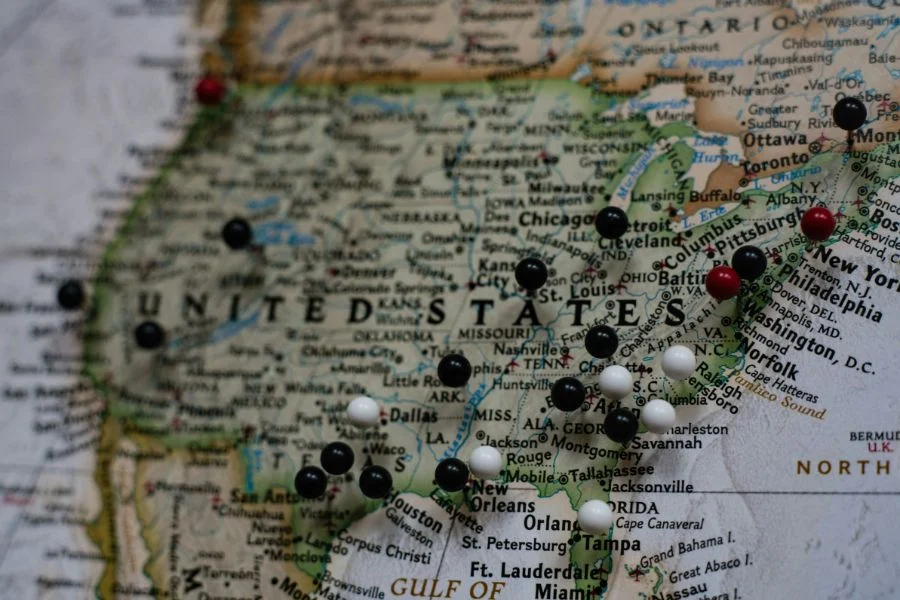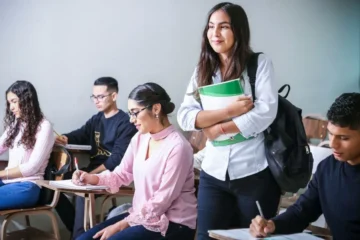The Fulbright U.S. Student Program for the 2026–27 cycle has officially opened its application process, offering U.S. citizens the opportunity to pursue graduate study, research projects, or English teaching abroad. Managed by the U.S. Department of State, the program offers fully funded opportunities for cultural exchange and academic growth in over 140 countries. With awards ranging from research grants to English Teaching Assistantships, applicants can tailor their experience to their academic or professional goals. The deadline to apply is October 7, 2025, and successful candidates will join a global network of leaders, innovators, and cultural ambassadors.
Key Takeaways
What Is the Fulbright U.S. Student Program?
The Fulbright Program isn’t just another fellowship with a fancy name—it’s one of the world’s most prestigious international exchange initiatives. Established in 1946, it was designed to promote mutual understanding between the United States and other nations through education, culture, and research. Over the decades, Fulbright has become synonymous with opportunity, global networking, and academic excellence.
Administered by the U.S. Department of State, the program offers U.S. citizens the chance to study, conduct research, or teach English abroad. Today, it operates in more than 140 countries and awards approximately 8,000 grants annually. Out of these, around 1,600 are designated specifically for U.S. students, making it a highly competitive but life-changing opportunity. If you’ve ever dreamed of blending travel, cultural immersion, and career advancement, Fulbright could be your golden ticket.
Who Can Apply for the 2026–27 Fulbright Program?
Not everyone qualifies for this fellowship, so it’s worth checking the fine print before diving into the application. First, you must be a U.S. citizen; permanent residents, unfortunately, do not qualify. Second, applicants need to hold at least a bachelor’s degree by the time their grant begins, though current undergraduates can still apply during their final year of study.
Also Read: Foreigners in Georgia: Prepare for the 2026 Work Permit Requirement
Language skills may be required depending on the host country. For English Teaching Assistantships, basic knowledge of the local language often helps, while research grants in non-English-speaking regions may demand more advanced proficiency. Applicants should also note that those with extensive professional experience—especially in fields outside the arts—are typically not the target group. The program leans toward early-career scholars, researchers, and budding professionals ready to take a bold step internationally.
Types of Fulbright Awards Available in 2026
The 2026–27 cycle offers three main pathways. First, the Study/Research grants, where students can conduct independent research projects, enroll in graduate programs abroad, or engage in creative/performing arts. This is the most flexible option, allowing applicants to pursue highly specialized projects.

Second, the English Teaching Assistantships (ETA) remain a cornerstone of Fulbright opportunities. Here, scholars assist in classrooms overseas, helping students improve their English while also serving as cultural ambassadors. ETAs are particularly popular because they require less independent project planning but still deliver immense cultural exchange value.
Third, there are country-specific awards tailored to the needs of host institutions. Some countries may offer fellowships in particular disciplines, while others focus on the arts or public policy. These programs vary year by year, so applicants should carefully review the Fulbright website to find the option that aligns best with their goals.
Application Timeline and Key Deadlines for 2026–27
Timing is everything with Fulbright, and missing a deadline means waiting another year. Applications for the 2026–27 cycle officially opened in spring 2025. The most critical date to circle on your calendar is October 7, 2025, at 5:00 p.m. Eastern Time—that’s the hard deadline for submissions. No extensions, no exceptions.
Also Read: How to Study in Germany for Free as an International Student in 2026
If you’re applying through a university, you’ll likely face an earlier internal deadline. Most institutions require students to submit materials weeks in advance so they can review and endorse applications through their Fulbright Program Adviser. After submission, candidates undergo a multi-stage review process, which includes a national screening and final approval by the host country. Notifications typically roll out between January and April of 2026, so patience is very much part of the journey.
How to Prepare a Strong Fulbright Application
Fulbright reviewers see thousands of applications, so making yours stand out takes strategy. Your statement should be more than just a list of achievements; it should reveal who you are, why you want this experience, and how it fits into your long-term goals. Authenticity matters—polished but impersonal essays rarely cut.

Equally important are your letters of recommendation. Choose referees who know your work closely, whether that’s an academic adviser, research mentor, or professional supervisor. They should be able to highlight your abilities, character, and potential impact abroad. For research-focused grants, a well-thought-out project proposal is crucial. Demonstrating feasibility, local relevance, and clear outcomes can make or break your application. If you’re applying for an ETA, focus on your teaching philosophy, cross-cultural adaptability, and communication skills.
Why Apply for a Fulbright Grant in 2026?
Fulbright isn’t just about a free plane ticket and tuition—it’s about becoming part of an international network of innovators, artists, and leaders. As a Fulbrighter, you gain access to opportunities that extend far beyond your time abroad. Alumni frequently go on to influential careers in academia, government, non-profits, and global organizations.
Also Read: Birmingham Masters Scholarships 2026: Who’s Eligible and How to Apply
Beyond the professional perks, there’s the cultural immersion. You’re not just a visitor; you’re an active participant in another country’s daily life. That kind of experience changes perspectives, builds resilience, and enhances your ability to collaborate across cultures. And of course, there’s the prestige—“Fulbright Scholar” carries weight on resumes, grant applications, and professional networks for a lifetime.
Final Thoughts
The Fulbright U.S. Student Program remains one of the most impactful fellowships for young Americans. With full funding, diverse opportunities, and a reputation that precedes itself, the 2026–27 cycle is a chance to take your ambitions global. If you’re ready to push boundaries, immerse yourself in another culture, and join a global community of changemakers, now’s the time to start drafting that application.
Reference: https://foreign.fulbrightonline.org/apply





